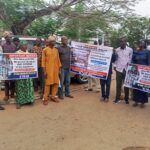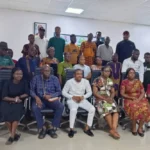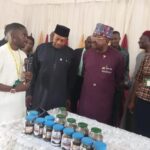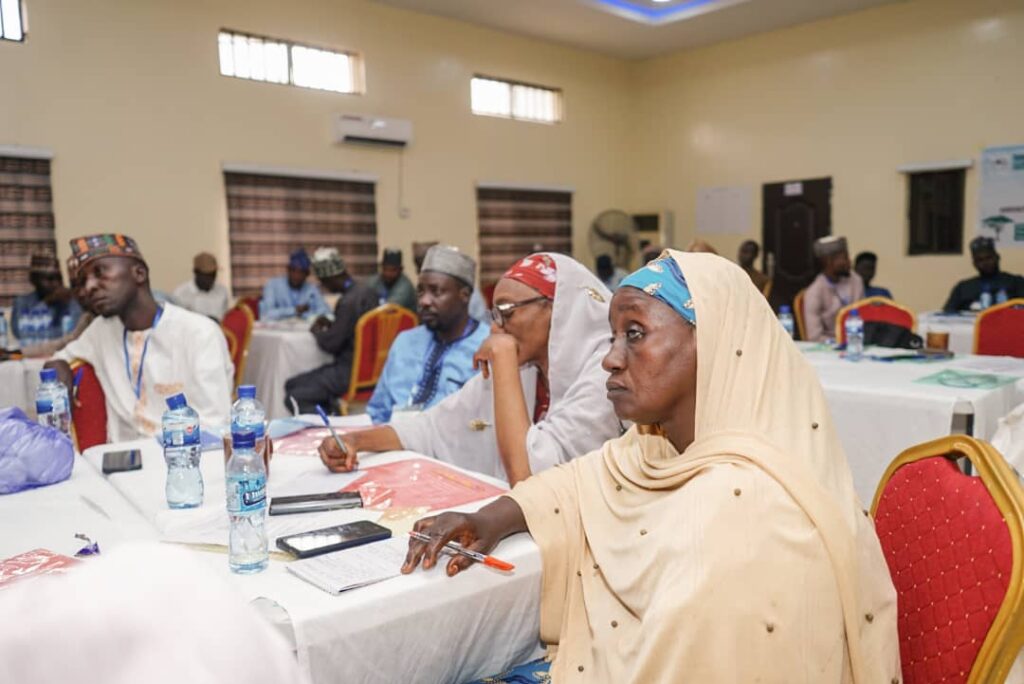By Ahmed Kaigama
International Fertiliser Development Corporation (IFDC), has begun the training of 50 extension agents and lead farmers on soil restoration, conservation techniques and integrated soil fertility management in Bauchi State.
The two-day training exercise is being implemented under the IFDC Soil Values Programme, aims to improve soil fertility and restore degraded lands in the state, the development comes on the heels of a similar exercise held in Kano and Jigawa.
The Soil Values programme operates in a context marked by climatic and socio-economic challenges facing Sahelian countries, such as recurrent droughts, socio-political conflicts. desertification and the effects of climate change.
The programme’s initiative is built around three intervention pathways (Agroecology, Inclusive Markets and Enabling Environment) as well as five intervention areas: Bundling, Integration, Brokering, Convening and Scoping & Learning.
It aims to improve soil fertility and productivity of two million hectares of agricultural land in the Sahel, while strengthening the resilience and wellbeing of 1.5 million farmers, with a particular focus on women and youth.
Medina Ayuba-Fagbemi, Country Coordinator, Soil Values Programme Nigeria, said this on the sidelines of the training exercise, on Thursday in Bauchi.
She said that 30 extension agents would be trained under the first phase while 20 others under the second phase of the exercise.
Medina said participants would be exposed to integrated soil fertility and soil health management techniques, to boost crop production and enhance food security.
The coordinator said the participants were expected to step down the skills to about 20,000 small holder farmers in Jama’are, Shira, Itas Gadau, Toro, Zaki, Bauchi and Gamawa Local Government Areas of the state.
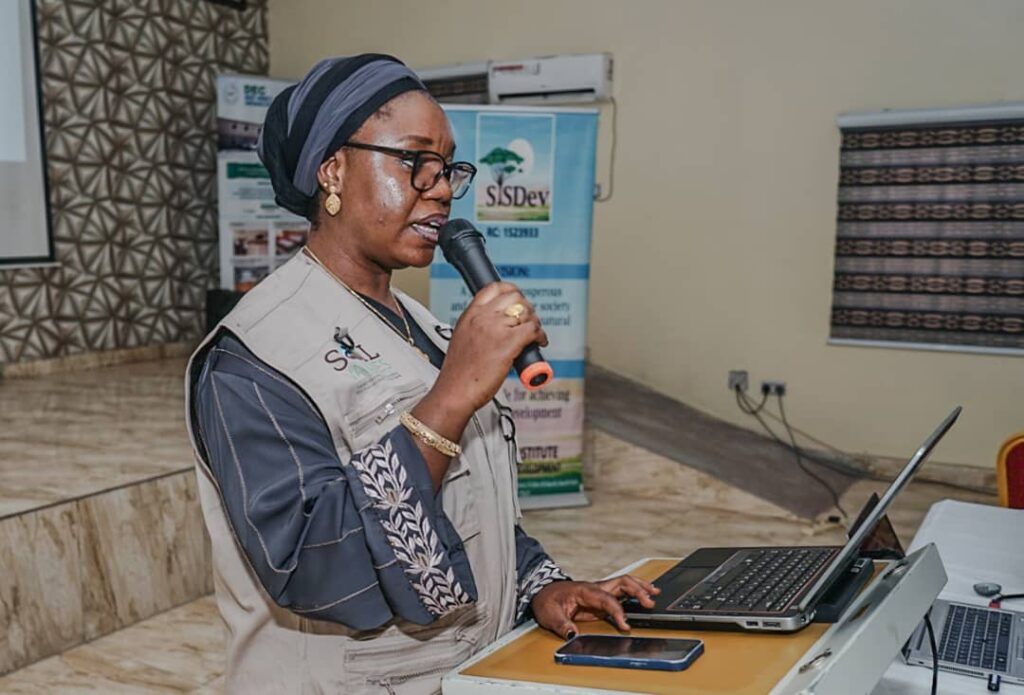
According to Medina, the programme in collaboration with a consortium of partners is building the capacity of extension workers in Integrated Soil Fertility Management (ISFM), and Soil Health Management (SHM) technologies.
Medina said the training exercise reflected its collective commitment towards restoring soil health, improving productivity, and building resilient farming systems.
The training exercise, she said, would not only strengthen extension agents’ technical capacity but also inspire new approaches to working hand-in-hand with farmers for more sustainable and inclusive agricultural transformation.
She said the training is part of a 10-year initiative funded by the Kingdom of the Netherlands through its (Dutch) Directorate-General for International Cooperation (DGIS).
Also, Joshua Arogunyo, MELS Coordinator, Soil Values Programme, said the programme focused on enhancing farmer skills in integrated soil health management and soil water conservation, to encourage agro-ecological practices to mitigate impact of climate change in agriculture.
He said the programme initiated viable programmes to improve soil fertility management and restore degraded lands in Bauchi, Kano and Jigawa, adding the scope of the programme would cover 10 states in northern Nigeria.
Arogunyo explained that the programme is being implemented by three core partners including the IFDC, SNV Netherlands Development Organisation, and Wageningen University and Research (WUR).
He added that the programme also has five knowledge partners, including the International Institute of Tropical Agriculture (IITA), AGRA, ICRAF, ISRIC and the International Water Management Institute (IWMI).
According to Arogunyo, the €100 million programme, is aimed at restoring degraded lands across the Sahel, covering Nigeria, Burkina Faso, Mali and Niger, and reaching 1.5 million smallholder farmers.
“Our target is to restore two million hectares of degraded land across the Sahel. In Nigeria, we hope to restore 800,000 hectares, directly benefiting 600,000 smallholder farmers.
“The thrust of the programme is to reduce the yield gap, improve soil fertility, and make farmers more deliberate about giving back to the soil to ensure long-term productivity and food security,” he said.
He highlighted that Soil Values initiative is built around five intervention pathways: bundling agricultural technologies for smallholder farmers; promoting landscape-level soil restoration, brokering financial instruments to support farmers, facilitating stakeholder policy on soil fertility, and continuous scoping and learning.
According to him, the programme has so far taken off in Kano, Jigawa and Bauchi States as pilot areas, with plans to expand gradually to other states in northern Nigeria.
“We are implementing it across the Sahelian zone of Nigeria because that is where land degradation is most severe,” he said.
Arogunyo further explained that the Soil Values consortium is also collaborating with the World Bank through ACReSAL and L-PRES.
“It is our hope that at the end of this programme, Nigeria would have made significant progress in restoring degraded lands, increasing farmer incomes, and raising consciousness about the importance of investing in soil health in a sustainable manner,” he said.
Some of the participants, Aliyu Safiyanu and Helen Ciroma, lauded the gesture, adding it would encourage Good Agricultural Practices (GAP) in the state.
Safiyanu said that he learnt new skills that would enable him to teach rural farmers on how to utilise farm by-products to nourish their farmlands.
On her part, Ciroma said the new techniques would enable women farmers to improve their soil fertility and increase productivity. (NAN)(www.nannews.ng)
MAK/RSA
========
Edited by Rabiu Sani-Ali



